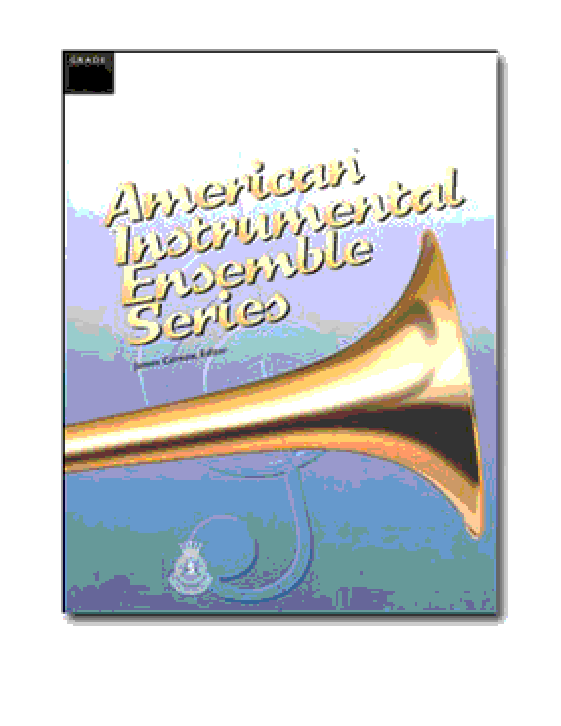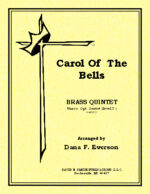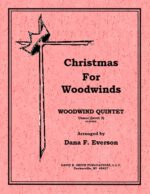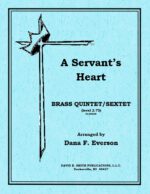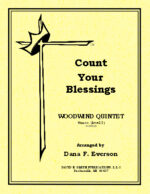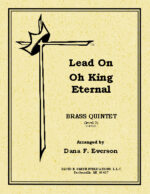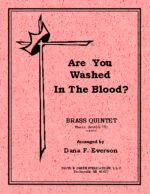| Instrument | |
|---|---|
| Level | 2 |
| Occasion | |
| Theme | Born Is The King |
| Writer | |
| Publisher | |
| Copyright | 2017 |
| Comments | Born Is The King |
Born Is The King
$24.95
Related products
-
Carol Of The Bells
$12.00A traditional quintet with optional sixth part baritone, this driving arrangement passes the melodic material constantly around the ensemble. A fun piece to play!
-
Spirit of God, Decend Upon My Heart
$10.00A standard brass quintet with optional trumpet for horn. The piece opens with a solo trumpet and gradually adds voices until it leads up to a modulation where the theme is now in the lower voices with gentle harmonic shifts. The upper voices respond with more motion until things are met with another modulation. This new section is more stayed until another modulation greets yet another modulation with the parts all intertwining amongst themselves and then… a solemn conclusion.
-
Meeting In The Air
$12.00A traditional brass quintet with opt. trumpet for horn and extra baritone for use as a sextet. The piece takes off immediately with a thematic statement in the trombone, breaking in a duet with the horn. Additional entries keep massing in the lower voices until most of the ensemble is involved. All of a sudden, the upper brass, silently present the tune in block harmonies until the lower brass present a countermelody. Now! Everybody’s involved. Next, a dialog between the upper brass and middle brass takes place as it alternates back and forth. With a modulation in place the tempo goes slow, the tune is in the lower brass- expressive! All of a sudden from bottom to top motives are presented- in stacked chords…. This goes through different transformations until the piece elevates into an uplifting conclusion.
-
Christmas for WW
$9.00(std+ opt)(opt quartet) Joy To The World; God Rest Ye Merry Gentlmn; Angels We Have Heard On High; O Little Town Of Bethlehem
-
A Servant’s Heart
$10.00A brass quintet, optionally sextet, begins with a soulful trombone solo joined with the remainder of the lower brass instrument only to be taken over by the trumpets. The middle section uses a punctuated accompaniment for nice variety only to migrate to the flowing style of the beginning. It then ends in solemn repose.
-
Count Your Blessings
$9.00Be ye thankful! Written for standard woodwind quintet with optional parts, this piece is highly decorated melodically and active rhythmically. It gives both the sense of majesty and joy.
-
Lead On O King Eternal
$10.00A traditional brass quintet with opt. trumpet for horn and extra baritone for use as a sextet. The introduction uses extraneous material where it leads in the first theme by the trombone until the theme is passed around in fragments until the them is taken over by the trumpets, and the trombones. A modulation takes place where the theme is in the trombones with flourishes in the trumpets. The trumpets now take the theme with flourishes in the middle voices until the piece ends with a declamatory statement.
-

